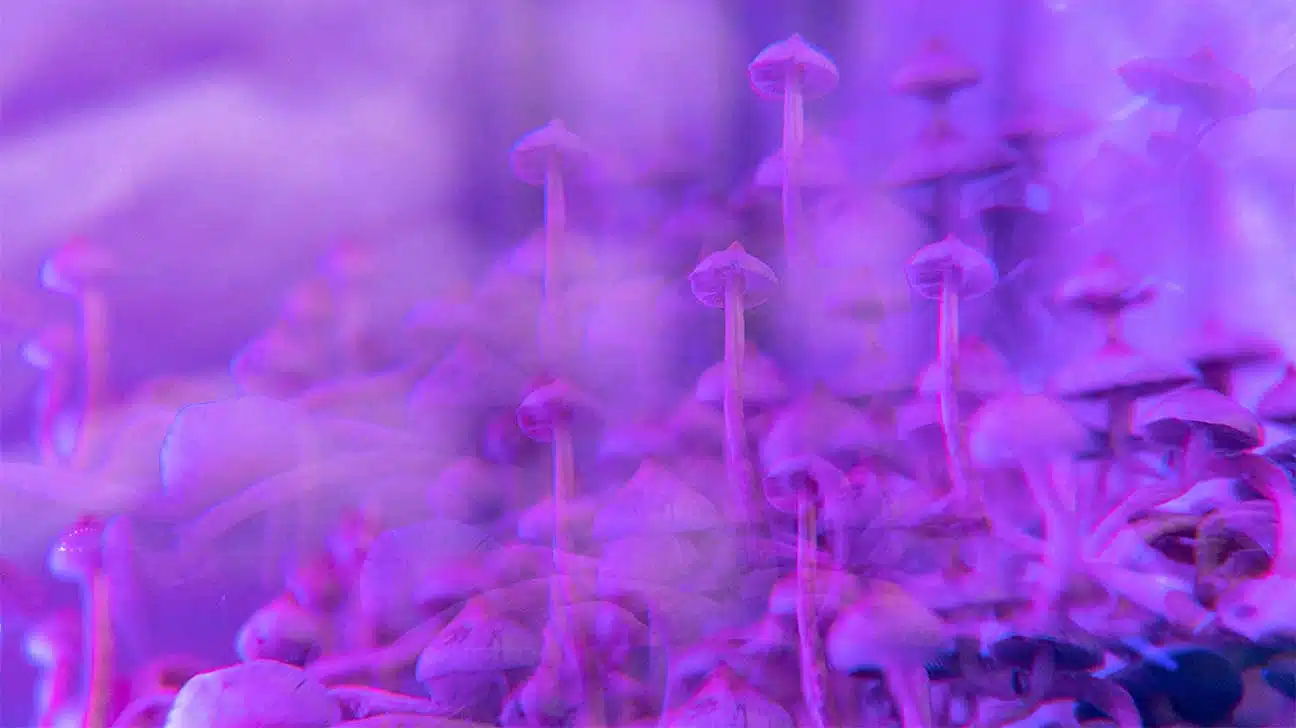
“Shrooms” or “magic mushrooms” are slang terms for psilocybin mushrooms, a type of dried mushroom that has psychedelic properties similar to lysergic acid diethylamide (LSD).
While the duration of a drug’s effects can vary based on the individual, the psychedelic effects of psilocybin mushrooms typically last up to six hours with varying levels of intensity over time.
Effects typically begin after 30 minutes. Keep reading to learn more about what a trip feels like, how long the effects last, and detection windows for shrooms.
How Long Do The Effects Of Shrooms Last?
After ingestion, psilocybin is converted to psilocin, which is the psychedelic compound that causes the effects of this mushroom species.
The effects of shrooms usually begin roughly 30 minutes after ingestion, and they often reach their peak effects in an hour. The psychedelic experience can then last for up to six hours.
However, like all hallucinogenic drugs, the effects of mushrooms can distort a person’s perception of time.
Some people describe an “afterglow” after using shrooms, or a sense of happiness and well-being that may last for several days after ingestion.
What Does A Shroom Trip Feel Like?
The hallucinogenic experience created by consuming magic mushrooms is colloquially known as a “trip,” which may be pleasant or unpleasant depending on the individual and their environment.
During a typical trip, a person may experience physical relaxation, happiness, and empathy. They may also experience sensory distortions that include intense colors, lights, and moving objects.
On the other hand, a bad trip may cause intense anxiety, reveal disturbing images, or lead to a dangerous psychosis.
Both situations can cause physical side effects such as muscle weakness, nausea, and vomiting with the potential for hospitalization if larger doses are consumed.
How Long Do Shrooms Last In The Body?
Psilocin has a short half-life. Researchers studying the mental health applications of psilocybin mushrooms found that the half-life was about three hours with a standard deviation of 1.1 hours.
As a result, the average person is likely to have psilocin in their system for 12 to 24 hours.
However, there are several factors that may influence how long shrooms last, including metabolism and frequency of use. Researchers did not find that weight played a significant role.
How Long Can Mushrooms Be Detected By Drug Tests?
Most types of drug tests do not look for psychedelic mushrooms.
The standard five-panel drug test that many employers use is meant to detect cannabis, opioids, amphetamines, and other commonly abused substances.
However, certain specialized tests may be able to detect metabolites from shrooms, especially when they are used in higher doses over a longer period of time.
Tests that specifically detect shrooms have the following detection times:
Hallucinogen Persisting Perception Disorder
Some people develop hallucinogen persisting perception disorder (HPPD) after using shrooms or other psychedelic drugs.
HPPD can cause lingering effects, often called “flashbacks” after mushroom use.
HPPD episodes do not cause intense trips, but some people notice occasional visual distortions for months or even years after using psychedelics.
Much like a trip, these distortions may be pleasant or unsettling, depending on the individual.
Frequently Asked Questions Regarding Shroom Effects
Many people have questions about how long shrooms last and what common side effects can occur. Here you’ll find common questions about this drug.
Are Shrooms The Same As LSD?
No, shrooms and LSD are different drugs. However, they belong to the same drug class and have similar effects.
The primary difference between shrooms and LSD drugs is that LSD is a synthetic substance manufactured in a lab, while shrooms are grown naturally.
Can A Person Become Addicted To Shrooms?
Although it is not impossible to become addicted to psilocybin mushrooms, it is rare.
When it does occur, magic mushroom addiction is usually related to polysubstance abuse or another co-occurring mental health disorder.
This form of substance abuse may require specialized treatment, as specific drug interactions can be especially dangerous. For example, mixing shrooms with opioids can cause severe reactions.
Can A Person Develop A Tolerance To Mushrooms?
Yes, it is possible and common to develop a tolerance to mushrooms.
The more frequently a person uses mushrooms, the more of the drug they will have to take to achieve similar effects.
Can Shrooms Treat Alcoholism?
There is limited research available on treating alcohol use disorder with shrooms. However, early research shows that microdosing with psilocybin mushrooms may have some benefits.
Find Treatment For Substance Use
If you or a loved one are ready to begin recovering from drug use, contact AddictionResource.net today for more information about treatment options.
For some people, mushroom use is combined with other types of drug abuse, causing a disorder called polysubstance abuse.
Whether a person is using multiple drugs or mushrooms alone, various types of addiction treatment are available.
Addiction Resource aims to provide only the most current, accurate information in regards to addiction and addiction treatment, which means we only reference the most credible sources available.
These include peer-reviewed journals, government entities and academic institutions, and leaders in addiction healthcare and advocacy. Learn more about how we safeguard our content by viewing our editorial policy.
- National Library of Medicine
https://www.ncbi.nlm.nih.gov/pmc/articles/PMC6007659/ - National Library of Medicine
https://www.ncbi.nlm.nih.gov/pmc/articles/PMC3736944/ - United States Drug Enforcement Administration
https://www.dea.gov/factsheets/psilocybin


